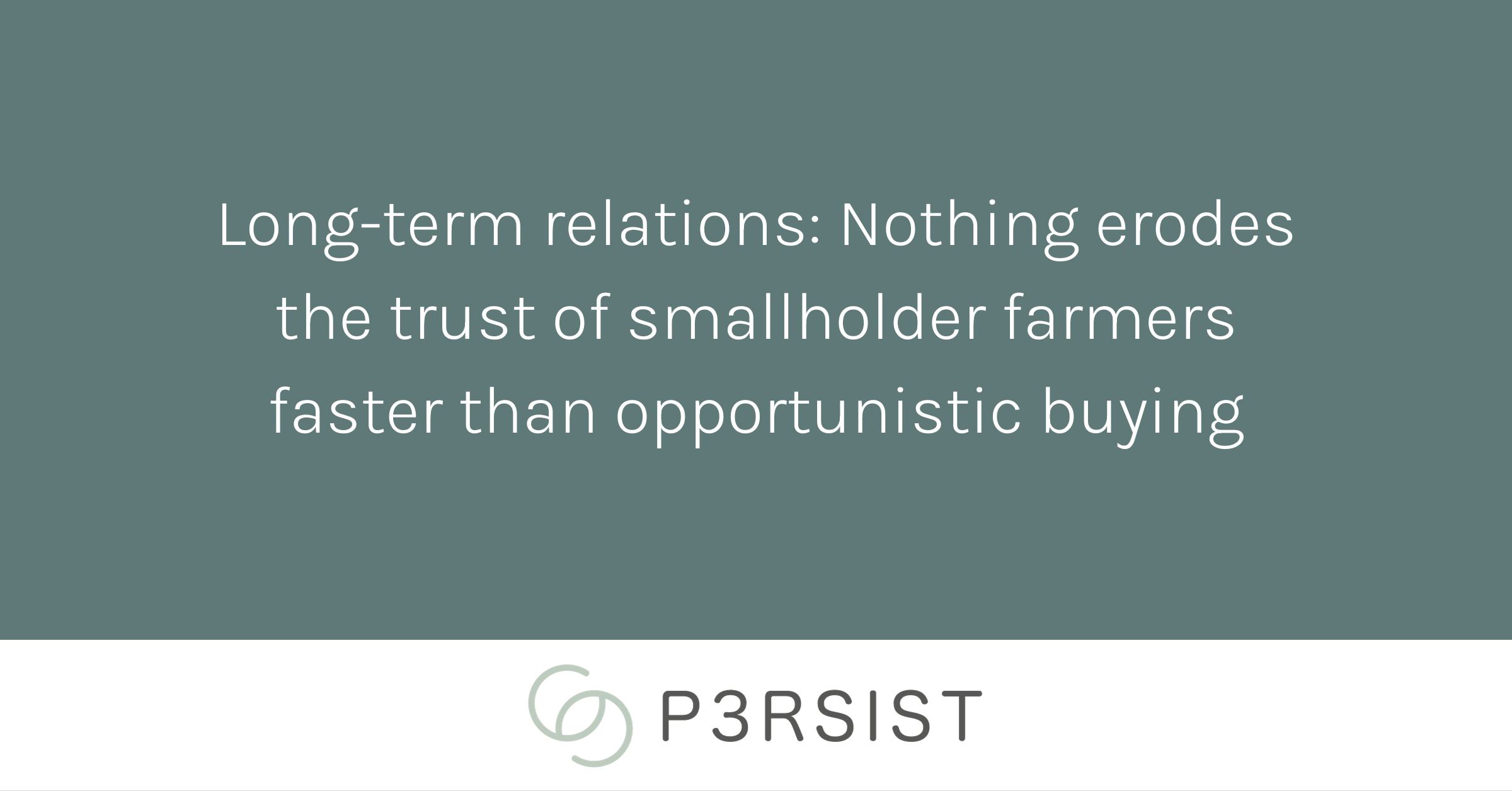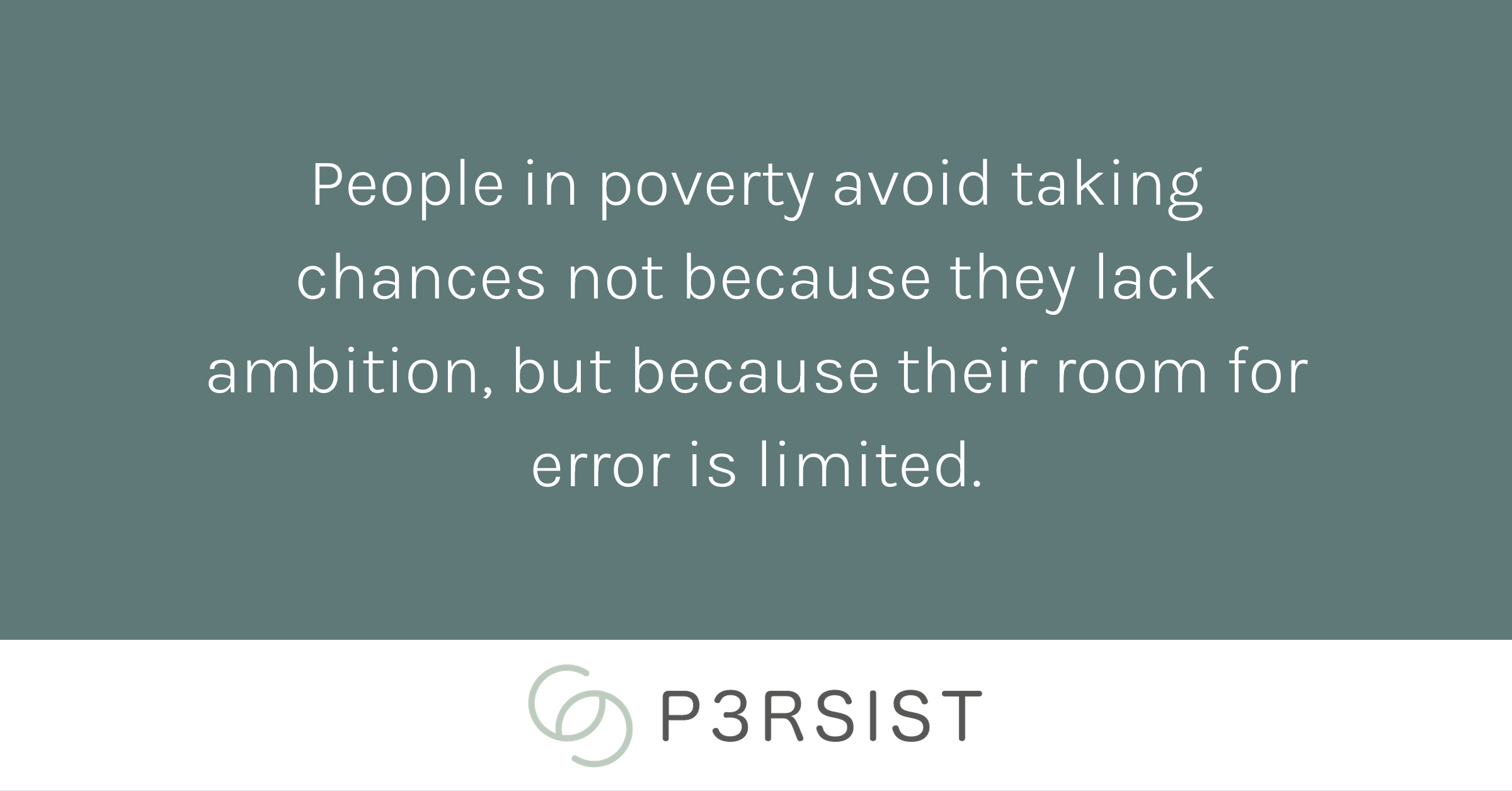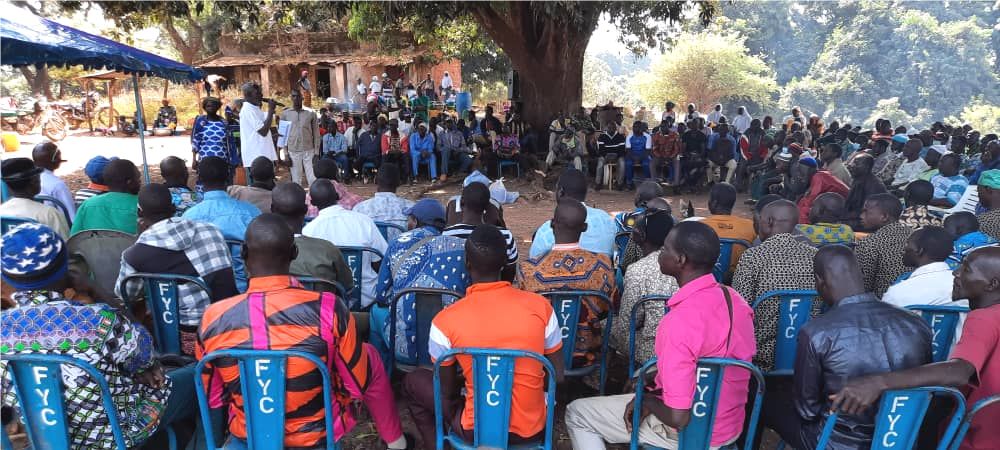- Understanding the right mindset
- The need for consistency and reliability
- The Role of Specialized Partners
- Creating an economic engine
- Addressing side selling
- Navigating cooperative politics
- The risk of trying new things
- Facilitating knowledge sharing
- Conclusion: effective sourcing practices with smallholder farmers
Smallholder farmers are the backbone of agribusiness in Africa. They are responsible for producing the majority of food, contributing significantly to local economies and ensuring food security. They also produce the vast majority of cash crops such as cashew, cotton, coffee, cocoa, rubber, tea, macadamia, avocados, etc. Working with smallholder farmers is not without its challenges. The complexities of the operating environment, coupled with socio-economic factors, make it a necessity for businesses to have an effective sourcing strategy.
Engaging with smallholder farmers offers a unique set of challenges and opportunities. From issues like side selling and cooperative politics to the reluctance to adopt new practices and the difficulties in knowledge sharing, the obstacles can be many. Yet, these same challenges also present opportunities for businesses that are willing to invest in strategic long-term relationships and create incentives that align the interests of farmers and buyers.
This article delves into practical strategies for effectively sourcing from smallholder farmers, drawing on our fourteen years of field experience. We will explore the importance of the right mindset, building the long-term relationships, leveraging ecosystem partners, and creating robust business models that empower cooperatives and farmers. By addressing the common challenges faced in working with smallholder farmers, we aim to provide some solutions that worked for us in creating sustainable and efficient value chains. Here are the lessons we learned while sourcing over ten thousand tonnes of cashew with just five staff, no trucks and a shoestring budget.
Understanding the right mindset
Developing relations with African smallholders with the right mindset is key. You and your partners need to treat farmers as suppliers and business partners instead of beneficiaries. Most businesses offer some sort of technical support to smallholder farmers and/or cooperatives. This can be with the objective of improving quality and yields, traceability systems, certification, cooperative development, etc. Too often, smallholders are then treated as “beneficiaries” of a philanthropic approach.
Here is why the philanthropic approach is problematic: it diminishes the power of market incentives. When smallholder farmers become aware that they are being treated as “beneficiaries”, guess how they will start behaving? Not as suppliers, for sure. Moreover, the term “beneficiary” creates a power dynamic where the giver holds the power, and the beneficiaries are powerless. Treating farmers as business partners puts them on an equal footing and puts the responsibility for their business where it should be. It will also make it easier to deliver on impact and sustainability.
We’ve written an article on the problematic term “beneficiary”. If you’re short on time, go to the first header of the article and read the example of how one farmer put his cooperative on the right track. It also highlights the versatile role of livestock in rural communities and the importance of goats for sustainable value chain development. I highly recommend you read it.
Your sourcing team needs to have incorporated the business mindset into their interactions with farmers. We’ve found this one of the main challenges. The donor funded community has done great damage in instilling this “beneficiary” mentality among local employees, partners, farmers and even clients. You’ll need to work on your own business culture and values to get rid of this and work on educating your partners that a business approach will get the impact results that they are looking for. Ditch the beneficiary attitude.
The need for consistency and reliability
So, you’re going to invest in the development of long-term relationships with smallholder farmers. Building up traceability systems, developing cooperatives and implementing certification schemes with thousands of farmers doesn’t happen in a season or two. It requires a long-term perspective.
From the outset, you need to be clear with farmers that the support you are giving them to improve yields, quality, traceability, cooperative building etc. is not for free. You’ll need to clarify what you are expecting in return: the right quantities, at the right time with the right quality and specifications. Expectations of what each party seeks to get out of the relationship need to be communicated and the best is to cover these in a letter of intent to be signed jointly with the cooperatives you want to work with.
The single most important thing for a successful sourcing strategy is meeting the needs of the farmers you intend to work with. Be under no illusion that whatever you’ve invested in the farmers will play any role on the day that they are looking to sell. When that day comes, you need to be there with a competitive price, a buying process that is as frictionless as possible and instant cash in the hands of the farmers. Without that, there is no basis for a successful relationship.
The above also means that you need to show up and buy raw materials even when you’re not sure about the market pricing at that moment. We’ve written before on the importance of spreading out purchases as much as possible throughout a season (the equivalent of dollar cost averaging in investing). Timing the market is very hard to do without extensive market information, and the odds are against you. We also know that in the long run, the pricing gap between raw materials and finished product must make sense financially, otherwise processing ceases to exist. If you buy at the average of the market, you’ll do better than most of the competition. Not getting this point is a key reason why agri-processors fail. Read more on this issue in the resilience section of this article on the main challenges for African agri-processors. Stop making ill-informed bets on the market and build up resilience instead.
Spreading out purchases over a season is not only the right thing for your risk management strategy but also for building a relationship with smallholder farmers. Nothing erodes the trust of farmers faster than opportunistic buying: they’ll feel the relationship is a win-lose proposition. This doesn’t mean that you should be reckless. Sometimes markets can be so irrational that buying becomes financial suicide. Use common sense but consider reputational and trust eroding effects when you think you need to withdraw from the market. We’ve found that maintaining some presence while limiting your volumes is often a superior choice.

The Role of Specialized Partners
Working with partners is crucial for your long-term success. You have got a factory to run, and if you are in this business, this better be your core-competence. Developing cooperatives and farms is a different ballgame for which you may not necessarily have the staff or skills. Find a partner that can help you with this. We had a very fruitful collaboration with the team of FairMatch Support who had a local office nearby. They took on such things as training of farmers, developing farmer leaders, certifications implementation, evaluations, support of our staff, etc. For many years our teams were closely coordinated in the development of the local cashew value chain.
The benefits of working with a specialized partner like FairMatch Support are numerous. They have extensive knowledge of several value chains in different countries and as a result have developed best practice: no need to reinvent the wheel and make costly mistakes. They bring a network, expert knowledge in developing cooperatives and training farmers as well as resources on traceability and certifications. Moreover, they are seen as a trusted and neutral partner by all parties as they have no commercial interest in the transaction process of the commodity you are working with.
Other key partners can be international actors that are willing to support the development of value chains because of their impact and positive spillover effects. We’ve worked successfully with donors who funded most of the work of FairMatch Support. Other parties can provide technical expertise on traceability systems, or the effectiveness of the services offered to farmers. Clients can also be a resource. We had clients who contributed financially to the technical development of traceability systems and to the distribution of high yielding cashew tree varieties among farmers.
Creating an economic engine
What is the economic engine behind a model sourcing over ten thousand tonnes of raw materials, delivering services to over 3000 farmers, with no trucks for logistics and a shoestring budget? It is providing the right business incentives so that others do the work.
We recognized early on that running and maintaining our own fleet of trucks was a costly affair and that the farmer cooperatives could organize the logistics much more effectively than we did. When we send a truck to collect bags of cashew it goes to the village empty. When cooperatives organize it, the truck has a backload most of the time. Managing breakdowns, trucks stuck in the mud and fuel consumption is a nightmare for management. Outsourcing this frees up valuable management time and contributes to business resilience.
What we did was offer cooperatives two options: one where we organize the raw materials collection and a second where they deliver to the factory. We offered a higher factory gate price. We found that this was sufficiently interesting to them that over time, more and more cooperatives chose this option as they could generate additional revenues from it. They even invested in their own trucks sometimes, providing resources for the other crops that the members of the cooperative would engage in. This made the value chain more efficient overall and has positive spillover effects too.
We did the same for traceability: at any point we had 40-60 smartphones in the field, capturing traceability data and handling transactions. Only 6 were handled by people paid by us (3 permanent staff and 3 seasonals). All the other transactions were executed by farmer leaders. These were paid by the cooperatives themselves. Again, we provided a business model to the cooperatives that remunerated them so that they could pay their own buyers. It was our partner FairMatch support who would work with the cooperatives to budget their costs and work out the margins that they could make by taking on more of the roles within the value chain.
Addressing side selling
Side selling is the farmer deciding to not sell a part of his/her production to the cooperative but to a third party. It’s a classical free-rider problem where the farmer gets all the benefits of being a member of a cooperative, such as trainings, quality improvements, certification, subsidised inputs and other services, but then not upholding the other side of the bargain which is to make sure that the cooperative gets to sell the farmer’s produce. Side selling has the potential to substantially weaken cooperatives and can even lead to their collapse.
If, as a local processor you have invested considerable resources into the development of cooperatives, certifications and services, side selling can be particularly frustrating. It is important to keep in mind that most times, it is equally frustrating for the leaders of the cooperative itself. They too have invested considerable resources in making the cooperative work for everyone. The key challenge is working on improving the relationship between the cooperative and its members.
As a buyer, you need to work on helping the cooperative improve the quality of the carrot for the farmers to respect cooperative rules, as well as wielding a bigger stick. There’s a lot you can do to help cooperatives to improve relations with their members but before going into the tools, let’s have a closer look at the reasons for side selling first.
The main reason is often debt. The major reason behind side selling that we find is the need of the farmer to pay off debts. When working in cashew for example, that crop is their biggest income generator. Over the year farmers often take out loans with village traders or others to fulfil certain investment needs or filling in for a cashflow shortage such as school fees, a funeral, a medical bill or some house or vehicle repairs for example. Quite often in these arrangements, it is agreed that the farmer repays the debt in kind with bags of cashew. As a result, as the crop starts being harvested, the first few bags go towards the repayment of debt and are not being sold to the cooperative. We’ve estimated these volumes to sit at about a third of total production in cases.
The lending proposals made by small scale village lenders sound attractive to farmers. It is often presented as a “no interest” loan with just a requirement to pay the debt in kilos. However, the implied interest as calculated as a result of the difference between expected market price and agreed upon price for the loan often exceeds 100%.
There’s a massive opportunity here to create a triple win outcome for the farmer, cooperative and the factory as a buyer and investor in the value chain. The opportunity is to create a system where the farmer has access to short term loans at reasonable interest rates. These can be provided by the cooperative as an aggregator and facilitator for whatever financier you decide to work with. The financier can be you advancing money for buying the crop or you can work with a microcredit lender or local bank. Check local legislation to find out what is possible. The objective is to take the village loan shark with a repayment in kind requirement out of the equation. Moreover, individual loans can be collateralized on the cooperative level which improves pay-back rates.
Another and rather obvious reason for farmers to side sell is a lack of buying power by the cooperative/factory. You need to make sure that you are ready to buy from farmers at the moment that they are looking to sell. You need to have a good price, a frictionless purchase system and cash in the hands in the farmer as quickly as possible. It sounds obvious but it’s easier said than done. You need to communicate prices effectively throughout different sourcing areas and distribute payments/cash in anticipation of purchases. Your own financiers need to disburse crop finance on time (a challenge of its own!) in order for you to advance cash to the cooperatives. Controlling the risks in such a buying system is a major consideration and worthy of a topic on its own.
Navigating cooperative politics
The second major challenge is cooperative politics. Some cooperatives are very well run by very competent leaders. Others encounter more challenges. Most political challenges involve a lack of trust between groups of cooperative members and the cooperative management. We found that smaller cooperatives, covering a few villages are much less likely to encounter trust problems than cooperatives that are spread out over a larger region. And this makes sense: proximity breeds trust.
Mistrust often stems from concerns over the use of funds from premiums and other income streams of the cooperative and from potential personal gain. An example of that would be a cooperative buyer passing on a lower price to the farmer than agreed upon with the factory, and the buying agent for the cooperative pocketing the difference.
The solution? Capacity building on reporting mechanisms and other transparency tools. Pricing issues can be resolved by more transparency in communicating your buying prices. Do not only make it known to leaders of the cooperatives but also make sure everyone else knows your going factory gate price. Farmers will be able to calculate backwards from that what their price in the field should be.
Governance issues can be resolved by helping cooperatives put in place the right tools. We’ve worked on supporting them with the preparation of budgets, drawing up financial statements and preparing for cooperative meetings. It was not the factory that was doing all these things but a trusted third party like we mentioned in the previously.
Sometimes these precautionary measures fail, and in that case, I felt compelled to help cooperatives resolve their problems by getting out there, meeting with farmers and reminding them about the long-term picture and why factories, cooperatives and farmers must work together to create positive outcomes for all. Quite often I found that when the long-term benefits are clear for everyone, any short-term challenges appear less important and can be quickly resolved.

The risk of trying new things
One of the major reasons for a factory to invest in cooperatives and value chain development is to change the status quo: better traceability systems, production in line with sustainability requirements of clients, certifications that open up new markets, etc. Most smallholder farmers however are reluctant to change. This resistance needs to be overcome in order to achieve the desired outcomes.
Smallholder farmers are reluctant to change for good reasons. If the smallholder farmer does not have important reserves, a bad outcome on changed production methods risks being catastrophic for his/her family. So, the key issue is to reduce the perceived risk/cost of any changes that you are asking farmers to make. You need to show them.
Join up with the most entrepreneurial farmers who have some reserves and who are willing to try new things with part of their farm. Get credible independent experts on board, do your due diligence on whatever you want to change and make sure that a major win for the farmer can be realized. Then execute a trial with selected, risk-taking farmers and deliver proof of concept. Then, and only then, bring the concept to the farmers who can least afford to take risk.
Contrary to what most funders would want you to do, don’t work with the poorest of farmers to make any changes to how value chains work. It just won’t happen as they can’t afford to take the risk to change existing production systems. Show positive results elsewhere first, and then they will be willing to adopt and take further steps.

Facilitating knowledge sharing
A final challenge is the willingness to share knowledge. We found ourselves regularly in situations where we found a great solution in the field but that the farmer wasn’t willing to share his/her knowledge with others. A case in point were three old cashew farmers who had a method of producing a cheap traditional beehive (grass woven) which could be opened from two sides, enabling the harvesting of honey without destroying the bee colony. All other grass woven beehives that were made locally only had one open side.
We thought that their design was brilliant and asked them if they could produce this type of beehive in the thousands per year. The idea was to sell the hives to other farmers who would position them in the cashew plantations where they increase the cashew crop and provide additional revenues through the sale of beeswax and honey. Their answer was that their production was limited to 200 units per year and that they couldn’t meet our request. When we suggested that we help them set up a beehive production business with a workshop where they could hire others to help manufacture the hives, they said no. They were reluctant to share their knowledge for fear of “giving away” their knowledge and being made redundant.
In the case of these beehives, we were unable to convince the farmers of sharing their knowledge, but we learnt from that experience. We created a training platform for farmer leaders where we brought farmers from different cooperatives together for several weeks a year to undergo training in a wide variety of topics. Most trainings were facilitated by other farmers. Going through such a process creates trust and builds relationships that facilitate the sharing of knowledge more easily. Instead of working bilaterally with cooperatives, we encouraged interaction among farmers of different cooperatives. This speeds up the spread and adoption of good ideas and best practices.
Conclusion: effective sourcing practices with smallholder farmers
Working with smallholder cooperatives is a great way to create win-win outcomes and to improve transparency and efficiency in agricultural value chains. Successful partnerships increase farmer income and resilience, develop market access through certifications and traceability, and make the value chain more efficient. It can also improve quality parameters of the product and encourage sophisticated buyers to engage for the long term. Local factories, cooperatives, and to a lesser extent traders have a big incentive to partner up to jointly realize these benefits. It is not always easy though and comes with its own set of challenges: side selling, cooperative politics, trying new things and the sharing of knowledge.
With the right mindset, the development of long-term relationships, a few strategic partners and the provision of economic incentives to cooperatives it becomes possible to source large volumes of certified, traceable product with a small team, without trucks and on a shoestring budget. It also yields superior sustainability results. I have had critical questions about this approach in the past. Some say that it would make it possible for cooperatives to switch clients easily, throwing away years of investment in the relationship. Though this is true in theory, I see it as the processors job to make sure that the cooperative has no reason to search for another client. Buying reliably, offering a secure market, and paying competitive prices and premiums will most certainly cement the relationship.
We hope that this article has given you some helpful insights into the possible challenges and solutions for sourcing from smallholder farmers. There are many other public sources available around the web that provide best practices. I’ll mention the one that I think is one of the best: the FarmFit Insights Hub by IDH. IDH also evaluated our sourcing model and used it for their insights. If you’d like to improve your sourcing practices from smallholders, please feel free to reach out to us here. We’d be happy to schedule a call and assist you.





